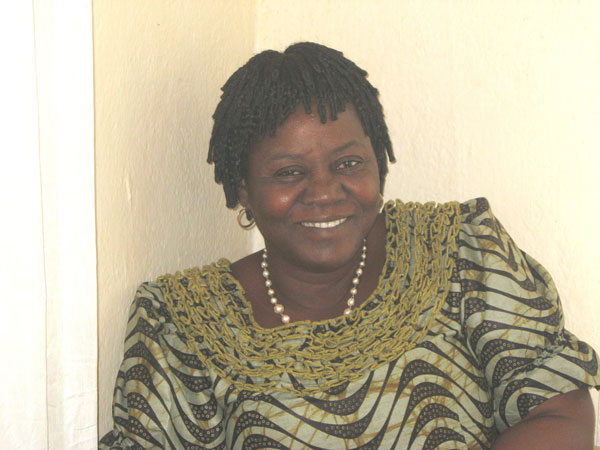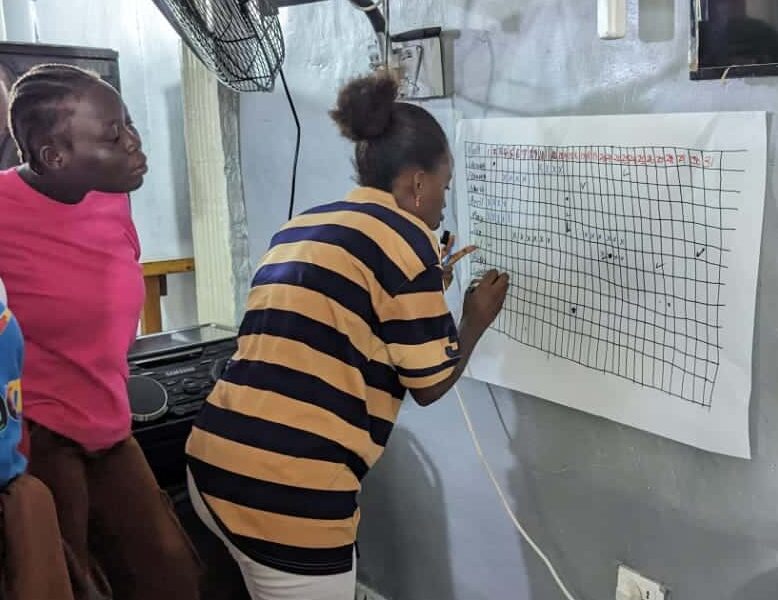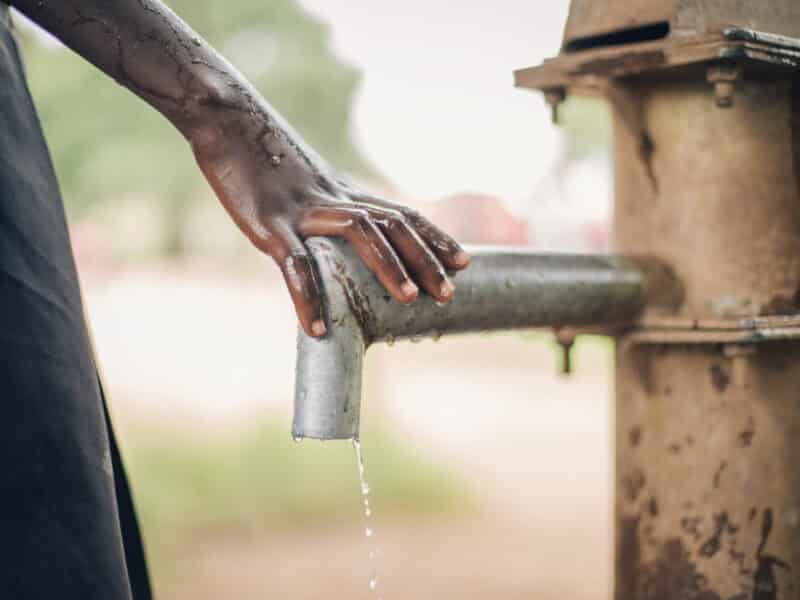Marietta Moore Yekee, a longtime staffer with the Johns Hopkins Center for Communication Programs in Liberia considered by many to be a “true gem,” died Tuesday. She was 65.
Yekee was raised on the Goodyear Tire plantation outside Monrovia and was one of the only girls in her high school and in her college classes. She became a nurse and later, during the country’s civil war, she and her family sought refuge and safety in Cote d’Ivoire, where through struggle and hard work, she ended up serving as principal for one of the Liberian refugee high schools there.
At the age of 60, she earned a master’s of public health. She talked about maybe establishing a health clinic with her family someday. But she had no real plans to retire, as she never seemed ready to stop doing the work she so clearly loved.
At the time of her death, she was the country malaria manager in Liberia for CCP’s VectorWorks project. Prior to that, during the Ebola crisis, she was a program officer for CCP’s Health Communication Capacity Collaborative (HC3) project in Liberia and later became the project’s deputy director there. She had worked at CCP for many years and previously worked for the Ministry of Health.
“I, along with many who knew her, relied on her steady presence, her ability to listen and connect the dots and her ability to get clear to the point in the most diplomatic but direct way,” says CCP’s Anna Helland, who worked with Yekee in Liberia. “Her love of what we did as CCP was clear – even to her church minister who invited her to facilitate a day-long session for her fellow parishioners on improving communication between couples.”
Yekee loved seeing how her work directly impacted people’s lives. She loved that when she taught young mothers about the value of breastfeeding, they could soon see the results in the health of their children. She would tell girls that using family planning didn’t keep her from having children when she wanted them (Yekee had several biological children and raised many others as her own).
“Marietta was everyone’s friend and confidant,” says Andrea Brown, a senior program officer at CCP who oversees the Liberia work for VectorWorks. “Most Liberians I met called her ‘Ma.’ She was highly regarded by everyone who knew her. She earned respect through her unpresuming confidence. She was a pillar of hope with a commitment that was beyond imagination.”
Brown says Yekee would typically sit quietly through an entire meeting and only once people were done talking would she pipe up with the spot-on response that incorporated everyone’s feelings and opinions and identified a solution.
“Marietta was a master,” she says. “She was magnetic. She had a knack for bringing people together. She not only connected to people and people to each other but brought out the very best in them.”
When the Ebola crisis began, Yekee had been working with CCP on the Rebuilding Basic Health Services project, which was designed to help put the fragmented Liberian health system back together after the longtime civil unrest there. But then Ebola erupted across Liberia in 2014. During the Ebola outbreak and the period after, where so much had to be re-built, the focus turned to building trust in a health system that had let down communities and health workers alike and equipping community health volunteers with the skills and knowledge necessary to be that stronger bridge between clinic and community.
That summer, when Ebola was at its peak, Yekee and her colleagues traveled to a hotspot in Lofa — the county where her parents were from. She found a region in despair. The four body bags she and colleagues brought with them were put to use immediately, while other bodies in need of burial lay on the ground. The disease was spreading rapidly and people were overwhelmed and panicking. “We don’t even know what to do,” one man told her.
“I stood there and felt very terrible,” she recalled in an interview months later. She began to help the community make a plan to regain control. “We had a meeting and began to prepare to fight the epidemic,” she said. With her expert guidance, village residents organized into teams of volunteers and drew up a plan for what they wanted to do and achieve. A day-by-day strategy took shape. People became calmer. “We needed someone to talk to. We didn’t know anything. We needed to be more composed and to sit and relax a bit,” a community member later told Yekee.
“She was integral to the work, seen as an authority by her peers, and seemingly everywhere at once,” says Bill Glass, a deputy director at CCP. “There is a hole now left in the social and behavior change community with her passing, and a profound sense of loss within the CCP family.”
Yekee’s life and work touched so many people because of the breadth of the work she had done throughout her life. Helland recalls a work trip to one of the rural parts of Liberia where the two sat relaxing at a hotel after a long day of meetings only to have a former student of hers recognize her and come over to give his greetings, remembrances and thanks.
“I often joked with her that she knew just about every one of the five million people in the country. We even ran into one such Liberian at the Kenya airport on our way to the first SBCC Summit in Ethiopia in 2016,” Helland says.
“For many of us, she was more than just a colleague, as so many have been touched by her good work, dedication, and kind heart,” she adds. “We will miss her.”




